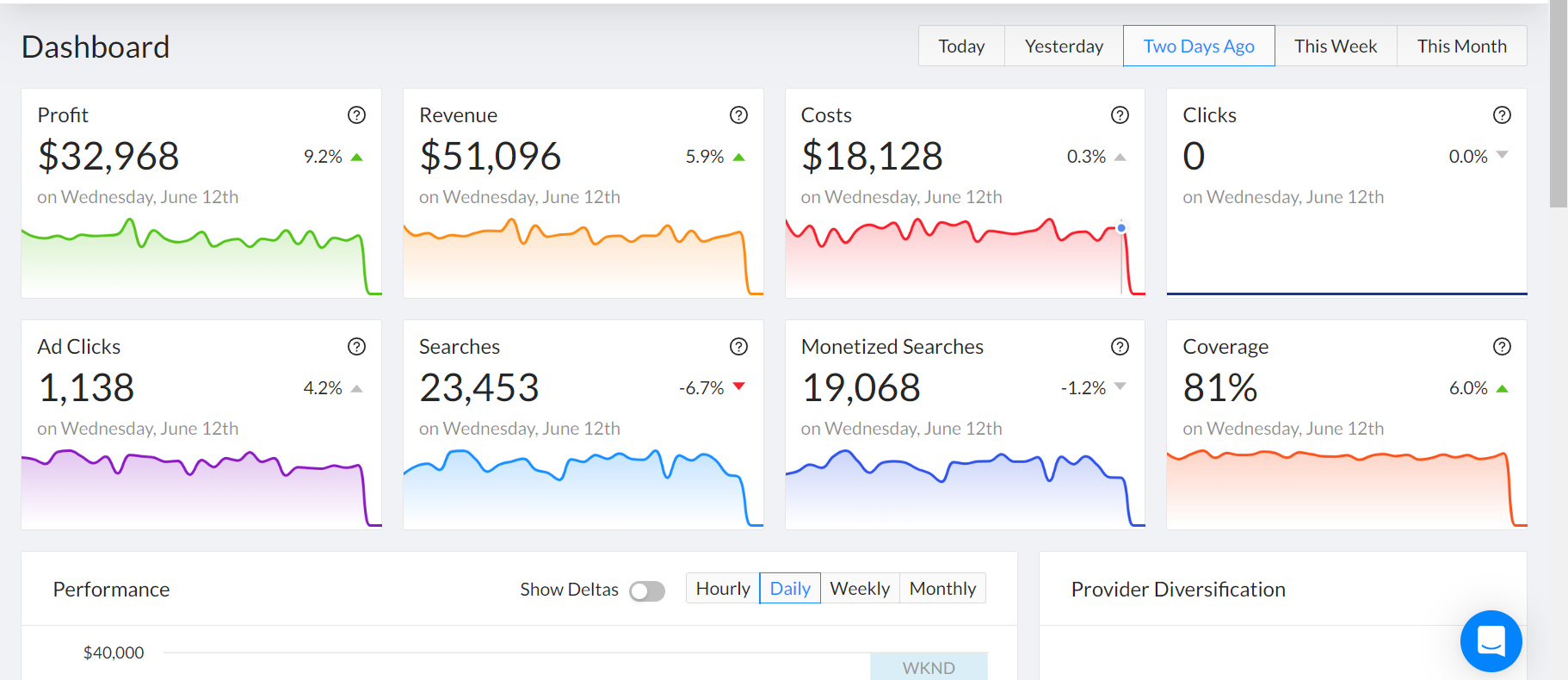Mastering Search Arbitrage: Strategies for Success
In the ever-evolving landscape of online advertising, search arbitrage has emerged as a promising avenue for digital marketers and entrepreneurs looking to capitalize on the vast opportunities presented by search engines. With its potential to generate significant revenue streams, search arbitrage has become a sought-after strategy for those looking to maximize their online presence and profit margins.
But what exactly is search arbitrage? And how can one master the art of harnessing its power for greater financial gains? In this article, we will delve into the intricacies of search arbitrage and explore various strategies that can lead to success in this dynamic field.
Before we delve into the details, let’s first understand the concept of arbitrage. Commonly associated with economics and financial markets, arbitrage refers to the practice of taking advantage of price differentials in different markets or instruments to make a profit. In the world of online advertising, search arbitrage involves leveraging the disparities in keyword prices across search engines to generate a profit.
Fixed income arbitrage strategies, triangular arbitrage, and the afriq arbitrage system are some of the key approaches that can be used in search arbitrage. These methodologies allow marketers to identify opportunities where the cost of acquiring traffic is lower than the revenue generated from the ads displayed on a webpage.
Mastering search arbitrage requires a deep understanding of the dynamics of search engines, keyword research, data analysis, and optimization techniques. It involves continuously monitoring and adjusting campaigns to ensure optimal performance and maximize profitability.
In the following sections, we will explore these strategies in more detail, providing insights and practical tips that can help you excel in the world of search arbitrage. Whether you are a seasoned marketer or a novice exploring new avenues for revenue generation, this article aims to equip you with the knowledge and tools needed to succeed in search arbitrage. So, let’s dive in and unlock the potential of this exciting digital marketing strategy.
Understanding the Basics of Search Arbitrage

In the world of ecommerce, search arbitrage has become a popular and profitable strategy for many online retailers. Simply put, search arbitrage involves buying and selling products through different online platforms to take advantage of pricing discrepancies. Understanding the basics of search arbitrage can help you make informed decisions and maximize your profits.
One key aspect of search arbitrage is finding the best stores for retail arbitrage. These stores often offer heavily discounted or clearance items that can be resold at a higher price on other platforms. By thoroughly researching and scouting these stores, you can find hidden gems that can fetch a significant profit when resold.
Another popular form of search arbitrage is Amazon eBay arbitrage. This involves sourcing products from Amazon and reselling them on eBay at a higher price. The goal is to take advantage of the price difference between the two platforms and earn a profit from the margins. However, it’s essential to stay up to date with the currents trends and pricing fluctuations on both platforms to ensure a successful arbitrage strategy.
To effectively execute search arbitrage, many retailers rely on tactical arbitrage websites. These websites use sophisticated algorithms to scan various online platforms for potential arbitrage opportunities. They can quickly analyze product pricing data and provide you with a list of profitable products to consider. This saves you time and effort in manually searching for opportunities and gives you an edge in the highly competitive world of ecommerce.
In conclusion, search arbitrage is a lucrative strategy for online retailers that involves buying and selling products through different online platforms. By identifying the best stores for retail arbitrage, participating in Amazon eBay arbitrage, and utilizing tactical arbitrage websites, you can maximize your profits and stay ahead in the ecommerce game. However, it’s crucial to always conduct thorough research and stay updated on market trends to ensure a successful arbitrage strategy.
The Importance of Keyword Research in Search Arbitrage
In the ever-evolving world of e-commerce, finding innovative ways to generate revenue is crucial. Search arbitrage, a practice that involves monetizing search engine traffic by displaying ads and earning through clicks, has gained popularity in recent years. However, to make the most out of search arbitrage, keyword research becomes an essential component.
Keyword research plays a vital role in search arbitrage as it helps identify high-demand, low-competition keywords that can drive targeted traffic to ads. For instance, if you’re promoting the “best app for retail arbitrage,” conducting keyword research can unveil what potential customers are searching for. By optimizing your ads with these targeted keywords, you increase the likelihood of capturing relevant traffic and maximizing your ad revenue.
Moreover, keyword research also enables you to discover emerging trends in the world of arbitrage, such as “crypto arbitrage.” Staying ahead of the curve and identifying untapped niches allows you to target specific customer needs and increase your chances of success in the ever-evolving market. By staying updated with the latest keywords, you can adapt your ad strategies accordingly and capture the attention of potential customers.
Additionally, keyword research can help you find opportunities in markets with slow brokers for arbitrage. By identifying these keywords, you can effectively target customers who are frustrated with slow brokers and offer them alternative solutions. By presenting your ads as a better alternative, you can attract customers who are actively seeking solutions to their slow broker problem, maximizing your chances of conversion.
In conclusion, the importance of keyword research in search arbitrage cannot be underestimated. It enables you to identify high-demand, low-competition keywords, stay updated with emerging trends, and target customers frustrated with slow brokers. By investing time and effort into keyword research, you can optimize your ad campaigns, attract targeted traffic, and ultimately increase your revenue in the competitive world of search arbitrage.
Implementing Effective Bidding Strategies in Search Arbitrage
Search arbitrage is a popular strategy for online marketers to generate revenue. It involves bidding on keywords in search engine advertising platforms and directing traffic to websites where ads are displayed. This enables marketers to profit from the difference between the cost-per-click they pay and the revenue generated from the ads on their websites. However, to truly optimize this strategy, one must implement effective bidding strategies.
In the realm of search arbitrage, there are various types such as real estate arbitrage, online retail arbitrage, and SaaS arbitrage. Each type requires a tailored approach when it comes to bidding. For instance, in real estate arbitrage, where keywords related to buying and selling properties are targeted, it is crucial to set bids that align with the potential profits from real estate transactions. On the other hand, online retail arbitrage involves bidding on keywords related to products, and here, the focus should be on finding a balance between the cost-per-click and the potential margins from selling those products.
To implement effective bidding strategies in search arbitrage, data analysis is paramount. Understanding the historical performance of keywords, click-through rates, conversion rates, and revenue generated is vital. This data provides insights into which keywords are most valuable and should be bid higher on, and which keywords may not be providing the desired returns. Moreover, monitoring competitors’ bidding activities can help identify opportunities and adjust bidding strategies accordingly.
Furthermore, leveraging automation tools can optimize bidding in search arbitrage. These tools can enable marketers to set rules and parameters to automatically adjust bids based on predefined conditions. For example, if a keyword’s conversion rate drops below a certain threshold, the bidding tool can lower the bid or even pause it temporarily. This ensures that bids are constantly optimized and remain aligned with the desired outcomes.
In conclusion, implementing effective bidding strategies is essential for success in search arbitrage, regardless of the specific type, be it real estate arbitrage, online retail arbitrage, or SaaS arbitrage. Data analysis and monitoring competitor activities play a crucial role in this process, allowing marketers to make informed decisions. Additionally, leveraging automation tools can further enhance bidding optimization, ultimately maximizing revenue in search arbitrage.
Maximizing ROI through Search Engine Advertising
In today’s digital age, businesses are constantly looking for ways to maximize their return on investment (ROI). One effective strategy that has gained traction in recent years is through search engine advertising. By leveraging platforms like Google Ads, businesses can target their audience effectively and capitalize on high-converting leads.
Amazon online arbitrage sourcing is a popular method for entrepreneurs to make money online. It involves finding products at a lower price on one platform and then reselling them at a higher price on Amazon. To succeed in this competitive market, having access to an exhaustive online arbitrage sourcing list is crucial. By utilizing search engine advertising, businesses can reach potential sellers who are actively looking for these lists, boosting their chances of getting a higher ROI.
Another essential aspect of maximizing ROI in the online arbitrage trade is analytics. By leveraging data and analytics, businesses can gain valuable insights into their target market, identify trends, and optimize their advertising campaigns. Platforms like Arbitrage Trade Analytics provide comprehensive dashboards and reports that allow businesses to monitor the performance of their advertisements, assess the return on ad spend (ROAS), and make informed decisions for future campaigns.
In conclusion, search engine advertising is a powerful tool for businesses to maximize their ROI in the online arbitrage industry. By utilizing targeted keywords such as “amazon online arbitrage sourcing,” “online arbitrage sourcing list,” and “arbitrage trade analytics,” businesses can reach their desired audience effectively. Additionally, incorporating analytics into their strategies allows businesses to optimize their campaigns and make data-driven decisions to further boost their ROI. With the right approach and tools in place, businesses can unlock the full potential of search engine advertising and achieve success in the online arbitrage trade.
Utilizing Analytics to Fine-Tune Your Search Arbitrage Campaigns
In the ever-evolving world of e-commerce, staying ahead of the game is crucial for success. One effective strategy for online sellers is search arbitrage, a process that involves buying low-cost inventory and then reselling it at a higher price on another platform. To make the most of this opportunity, sellers can leverage the power of analytics to fine-tune their search arbitrage campaigns.
One popular platform for search arbitrage is Amazon, and a key tool to optimize performance is Tactical Arbitrage. This Amazon arbitrage app provides valuable insights and data analysis that can greatly enhance your search arbitrage efforts. By utilizing its features, sellers can identify profitable niches, compare prices across multiple platforms, and spot trends that can help them stay one step ahead of the competition.
Another effective strategy within the search arbitrage field is online book arbitrage. This method involves sourcing books at low prices and then reselling them at a higher price, typically on platforms like Amazon. By utilizing analytics, sellers can identify the most profitable books, track sales rankings, and monitor price fluctuations. This data-driven approach allows sellers to make informed decisions and maximize their profits in the fast-paced world of online book arbitrage.
Overall, the use of analytics is instrumental in fine-tuning search arbitrage campaigns. Whether it’s through the Tactical Arbitrage app or other data-driven tools, sellers can gain a competitive edge by utilizing insights to optimize their inventory sourcing, pricing strategies, and overall decision-making process. Success in search arbitrage requires a deep understanding of market trends, and analytics provides sellers with the information they need to stay ahead of the game and achieve their business goals.
Common Pitfalls to Avoid in Search Arbitrage
Search arbitrage has become a popular strategy among online sellers, especially those involved in Amazon FBA online arbitrage. This involves leveraging search engines like Google to find profitable products and then reselling them on platforms like Amazon for a higher price. However, there are several common pitfalls that sellers should be aware of to avoid potential losses.
One of the biggest mistakes in search arbitrage is relying too heavily on automated tools like Tactical Arbitrage. While these tools can be helpful in identifying potential products, they should not be the sole basis for making purchasing decisions. It’s important to manually review each product to ensure that it meets the required quality standards and has a viable market demand.
Another pitfall is not considering the competition. Many sellers fall into the trap of only considering the potential profit margin without taking into account the level of competition they will face on platforms like Amazon. Understanding the competition is crucial in determining the potential success of a product. Conduct thorough research on similar products, their pricing, and sales performance to make an informed decision.
Lastly, neglecting to continuously monitor and adjust product pricing can lead to missed revenue opportunities. Prices on platforms like Amazon can fluctuate frequently, and failing to stay on top of these changes can result in missed sales or reduced profit margins. Regularly assess your pricing strategy and make adjustments accordingly to remain competitive in the market.
In conclusion, search arbitrage can be a profitable venture if done correctly. By avoiding common pitfalls such as relying solely on automated tools, considering competition, and regularly monitoring product pricing, sellers involved in Amazon FBA online arbitrage can increase their chances of success and maximize their profits.
Adapting to Changes in Search Engine Algorithms for Success
In today’s fast-paced digital landscape, staying ahead in the online business game requires constant adaptation. This is particularly true when it comes to search engine algorithms. As search engines like Google and Bing constantly update and refine their algorithms, businesses must be ready to adjust their strategies to ensure success.
One area where this adaptability is crucial is in online arbitrage. With the rise of tools like Jungle Scout and Tactical Arbitrage, entrepreneurs have been able to tap into the world of e-commerce and make significant profits. However, as algorithms change, it is essential to stay informed about the latest updates and adjust strategies accordingly.
For instance, the recent popularity of cryptocurrency arbitrage has created new opportunities for businesses. By taking advantage of price discrepancies across different cryptocurrency exchanges, savvy entrepreneurs can make a profit. However, keeping up to date with changing algorithms ensures that businesses can continue to capitalize on this lucrative strategy.
To navigate the ever-changing digital landscape, entrepreneurs must stay informed and connected with the latest trends and technology. Subscribing to industry newsletters, participating in forums, and networking with other professionals are all essential actions to remain ahead of the curve. By doing so, businesses can ensure they are up to date on the latest algorithm changes and can adjust their strategies accordingly.
In conclusion, adapting to changes in search engine algorithms is vital for success in today’s online business world. Whether it’s in the realm of jungle scout online arbitrage, cryptocurrency arbitrage, or tactical arbitrage, staying informed and adjusting strategies is essential. By being proactive and adaptable, businesses can position themselves for ongoing success and continued growth in the ever-changing digital jungle.
Scaling Up Your Search Arbitrage Business
Are you looking to take your search arbitrage business to the next level? Scaling up your operations can be an exciting but challenging endeavor. However, with the right strategies and tools in place, you can expand and maximize your profits. One lucrative avenue to explore is Amazon arbitrage business, where you leverage the vast marketplace to buy low and sell high. With millions of products available, there is immense potential for success.
To scale up your Amazon seller retail arbitrage, it’s crucial to have a systematic approach. Conduct thorough market research to identify profitable products with high demand and low competition. Leverage data analysis tools and software that utilize artificial intelligence (AI) to identify trends and make data-driven decisions. By automating your research process, you can save time and focus on implementing your growth strategies.
Another key aspect of scaling up your search arbitrage business is establishing strong supplier relationships. Seek out reliable suppliers who can provide you with consistent and high-quality products at competitive prices. This can help you maintain a steady supply chain and ensure customer satisfaction. Additionally, consider diversifying your product range to cater to different customer segments and increase your revenue streams.
In addition to traditional search arbitrage, consider venturing into AI arbitrage trading. AI-powered algorithms can analyze vast amounts of data to identify profitable trading opportunities in financial markets. This advanced technology can help you generate higher returns and expand your business beyond traditional ecommerce platforms.
Scaling up your search arbitrage business requires careful planning, continuous adaptation, and a willingness to embrace new technologies. By leveraging the power of Amazon arbitrage business and exploring AI-driven trading opportunities, you can maximize your profits and take your business to new heights. So, roll up your sleeves, equip yourself with the right tools, and start scaling up your search arbitrage business today.
Staying Competitive in the Search Arbitrage Market
In today’s ever-changing digital landscape, staying competitive in the search arbitrage market is crucial for businesses looking to maximize their revenue. With the rise of online shopping and the increasing number of e-commerce platforms, it has become essential to employ effective strategies to stand out from the competition.
One important aspect of staying competitive in the search arbitrage market is understanding the tactical arbitrage price. Tactical arbitrage involves analyzing and comparing prices across different platforms to identify opportunities for profit. By staying updated on market trends and actively monitoring pricing strategies, businesses can ensure that their prices remain competitive and attractive to potential customers.
Another strategy that can give businesses an edge in the search arbitrage market is embracing p2p arbitrage. Peer-to-peer arbitrage involves taking advantage of price disparities between individual sellers on platforms such as online marketplaces. By being vigilant in identifying and leveraging these opportunities, businesses can increase their profit margins and attract a wider range of customers.
Lastly, dollar arbitrage plays a significant role in the search arbitrage market. This strategy involves capitalizing on fluctuations in currency values to maximize profits. By monitoring currency markets and adopting a flexible pricing strategy, businesses can offer better deals to customers when the exchange rates are in their favor.
In conclusion, staying competitive in the search arbitrage market requires businesses to employ tactics such as analyzing tactical arbitrage prices, embracing p2p arbitrage, and leveraging dollar arbitrage. By continually adapting and refining their strategies, businesses can not only maximize their revenue but also establish themselves as frontrunners in the increasingly competitive online marketplace.
Best Practices for Long-Term Success in Search Arbitrage
In the ever-evolving world of online arbitrage, staying ahead of the game is crucial for long-term success. To maximize profits and minimize risks, it’s important to implement strategic best practices. Whether you’re a seasoned arbitrageur or just starting out, these tips will help you stay on top of your game.
Firstly, knowing the best websites for online arbitrage is essential. Platforms like Amazon, eBay, and Walmart offer great opportunities for finding profitable products. Additionally, exploring specialized websites like Cryptorank Arbitrage and Tactical Arbitrage can provide you with unique insights and potential investment opportunities.
Secondly, diversifying your arbitrage portfolio is key. Relying solely on one platform or niche can be risky, as market trends and competition can fluctuate rapidly. By diversifying your portfolio across different platforms and niches, you mitigate the risk of overexposure and increase your chances of finding profitable deals.
Finally, staying informed and continuously adapting your strategies is crucial. The world of online arbitrage is highly dynamic, with new trends, technologies, and regulations constantly emerging. By staying up-to-date on the latest industry news, learning from the experiences of other successful arbitrageurs, and leveraging analytical tools, you can stay ahead of the competition and make well-informed decisions.
In conclusion, achieving long-term success in search arbitrage requires a combination of strategic practices. By knowing the best websites for online arbitrage, diversifying your portfolio, and staying informed, you can position yourself for profitable ventures and overcome challenges along the way. Remember, adaptability and continuous learning are key to thriving in this ever-changing field.



